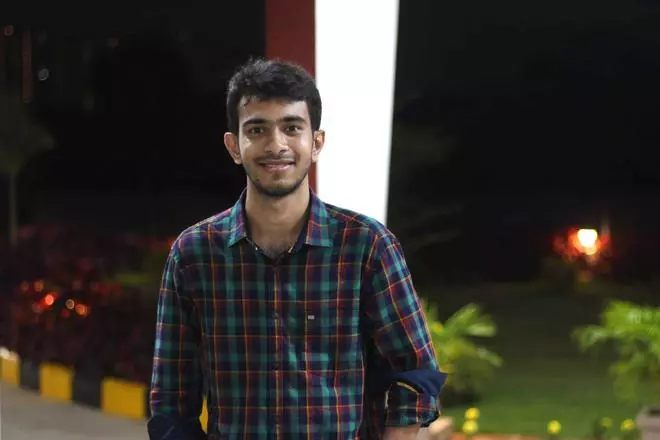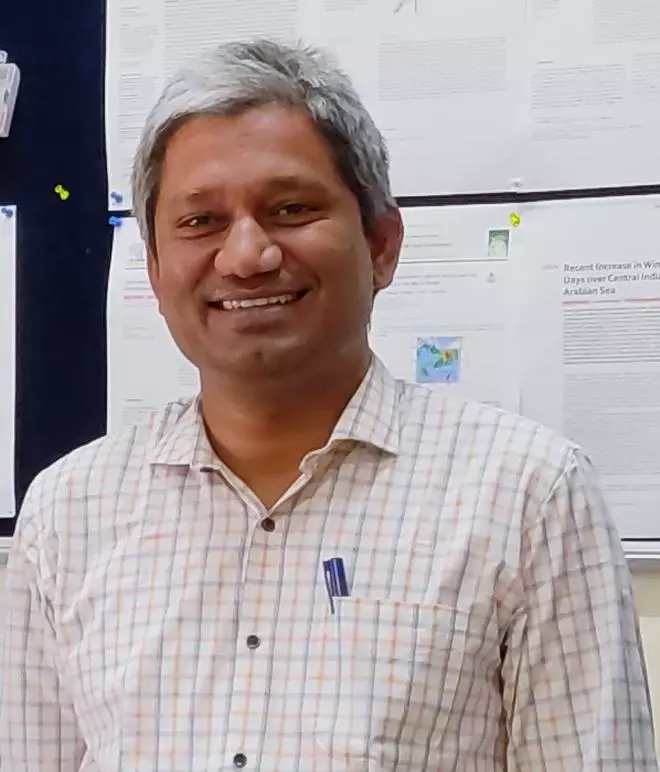That climate change is causing extreme weather events has been proven several times. A study by the University of Hyderabad found that ‘anomalously higher temperatures’ are increasing during summer every year, while the days with anomalously lower temperatures decrease during winter every year.
They found that heat wave events are increasing at the rate of 0.6 events per decade. At the same time, cold wave events are decreasing at 0.4 events per decade.

Aninda Bhattacharya, a student of Master of Science in Ocean and Atmospheric Sciences at the University of Hyderabad.
The study, which was led by Aninda Bhattacharya, a student of Master of Science in Ocean and Atmospheric Sciences at the University, studied the daily maximum and minimum temperature data of 49 years – from 1970 to 2019 to assess the frequency of occurrence of days with anomalously high temperatures (referred to as heat waves) and days with anomalously low temperature (referred to as cold waves) over different climatic regions of India.

Vijay Kanawade from the Centre of Earth, Ocean and Atmospheric Sciences, School of Physics at the University of Hyderabad.
Anomalously higher temperatures for three consecutive days or more are referred to as a heat wave event. An anomalously lower temperature for three consecutive days or more is called as a cold wave event.
Read also: Indian Ocean’s ‘rapid warming poses a threat to many species’
“Human-caused (anthropogenic) climate change has caused roughly an increase of 1 degree Celsius in global average surface temperature since the pre-industrial era,” their study said.
More read: How the monsoons have been propped up by the oceans and atmosphere
The study noticed diametrically opposite trends in heat waves and cold waves. For instance, heat waves are more common over arid and semi-arid climatic regions, while cold waves are less common over the same region.
Heat and cold waves adversely impact on agriculture, human health, and industrial production. Heat waves have become more common in summer in the recent decade, while cold waves have become less so common in winter in the recent decade in India.
Editorial. El Nino threat and heat wave effect loom large
“Climate change has worsened the frequency, intensity, and impacts of some of the weather events such as heat waves and cold waves,” the study said.
The study was featured in the Journal of Earth System Science. The others who participated in the study included Abin Thomas and Vijay Kanawade from the Centre of Earth, Ocean and Atmospheric Sciences, School of Physics at the University of Hyderabad. Chandan Sarangi, a professor at IIT Madras, P. S. Roy from World Resources Institute (WRI), and Vijay K. Soni from India Meteorological Department.





Comments
Comments have to be in English, and in full sentences. They cannot be abusive or personal. Please abide by our community guidelines for posting your comments.
We have migrated to a new commenting platform. If you are already a registered user of TheHindu Businessline and logged in, you may continue to engage with our articles. If you do not have an account please register and login to post comments. Users can access their older comments by logging into their accounts on Vuukle.